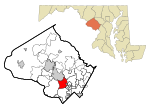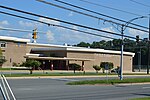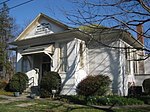India Development and Relief Fund
1988 establishments in Maryland1988 establishments in the United StatesAll Wikipedia neutral point of view disputesCharities based in MarylandForeign charities operating in India ... and 2 more
Organizations established in 1988Wikipedia neutral point of view disputes from January 2019
India Development and Relief Fund (IDRF) is a Maryland, USA-based 501(c) (3) tax exempt, non-profit organization (EIN: 52-1555563) that supports impoverished people in India, Nepal and Sri Lanka. IDRF's programs span all over India from Jammu and Kashmir to Tamil Nadu, and from Gujarat to Arunachal Pradesh, Nepal and more recently Sri Lanka. Since its inception in 1988, IDRF has disbursed $34 million in grants to various developmental programs pertaining to areas like: education, health, women's empowerment, eco-friendly development, good governance, and disaster relief/rehabilitation.
Excerpt from the Wikipedia article India Development and Relief Fund (License: CC BY-SA 3.0, Authors).India Development and Relief Fund
Mossrock Drive,
Geographical coordinates (GPS) Address Nearby Places Show on map
Geographical coordinates (GPS)
| Latitude | Longitude |
|---|---|
| N 39.03787 ° | E -77.118294 ° |
Address
Mossrock Drive
Mossrock Drive
20852
Maryland, United States
Open on Google Maps










